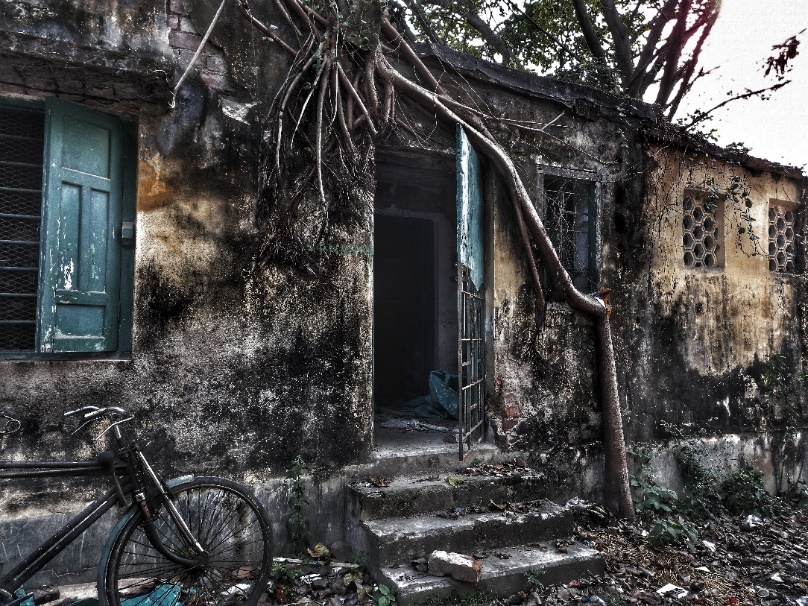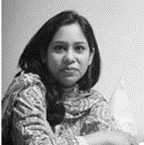
Every house has chests. Secrets folded under the stacks of silks and starched cotton. Some houses evoke fairytales. Roses and marigolds swaying in the front yard, giggling child on a swing. Some, on the other hand, look as if light ceased to shine there, laughter too; there, the bedside table piles up with medicines. Yellowed pictures hang on the walls.
If Tolstoy was alive, he’d have said: “Happy houses are all alike; every unhappy house is unhappy in its own way.” For reasons unknown, it’s the unhappy houses that I am drawn to. And this is why I perhaps find myself standing before an abandoned house in our neighborhood. On my way to school every morning, I pause there and ponder: is there a grim tragedy hidden behind those half-opened, half-broken windows? The iron door whose half of the frame has gone, the other half, the rusted iron grills, jutting out its greedy tongue.
I walk on; I have a bus to catch but the house haunts me. Sets a train of thoughts: Who lived there? The house is covered in years of dirt, dust, cobwebs, and trash. What happened to those people? Weeds have grown out of its cracks. Were they killed? Roots of some old tree snake from the roof to the ground, coiling the house as its prey. Are the bloodstains still smeared on the walls?
And then, one day, a bicycle appeared in front of the house. Is it a family member? A friend or a foe? Did he come to relieve his memories? Or to take revenge, years after being released from the prison? Or is it a government clerk, reclaiming a war property back? I must unearth the mystery. I ask Bizu, my elder brother for help which costs me two months of pocket money.
My brother and I walk down the road on a Friday morning; the house slowly reveals itself at the turn of the street. The rusted iron gate creaks open and we are face to face with the cycle man.
“What brings you here, kids?” he asks.
‘’Just passing by,” my brother says. “We were wondering about the house?”
The man seems to be hard of hearing; we ask something, he says something else.
Squinting his eyes, he asks, “Who? Rezaul Saheb, the retired banker?”
I stare at him, wide-eyed.
“What happened to him? His family?”
He takes his bicycle out of the gate, we follow him. “He died of age-old complications. His children live abroad. The property belongs to S and S developer company now,” he says more, but I stop listening and start walking; the loss of one-thousand taka hurt badly.
__
Photograph – Aritra Sanyal



























0 Comments